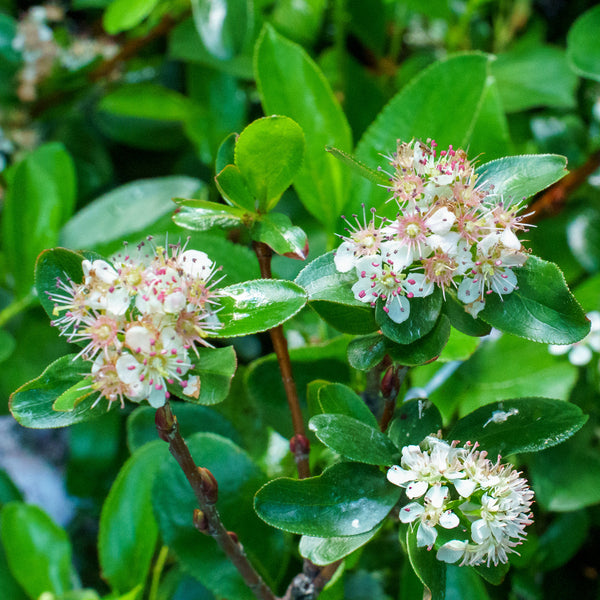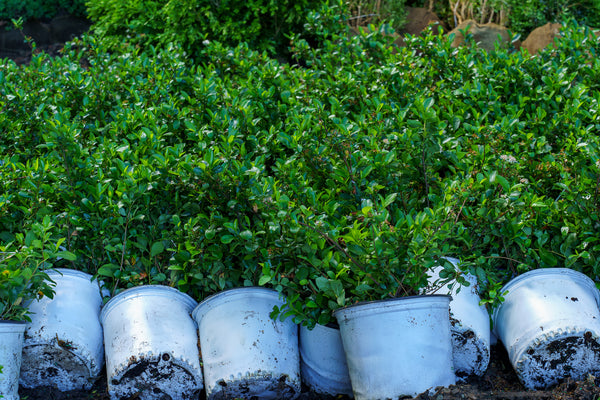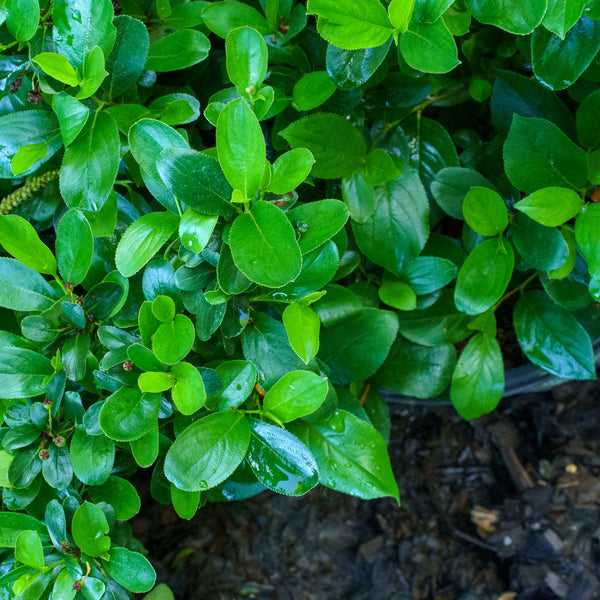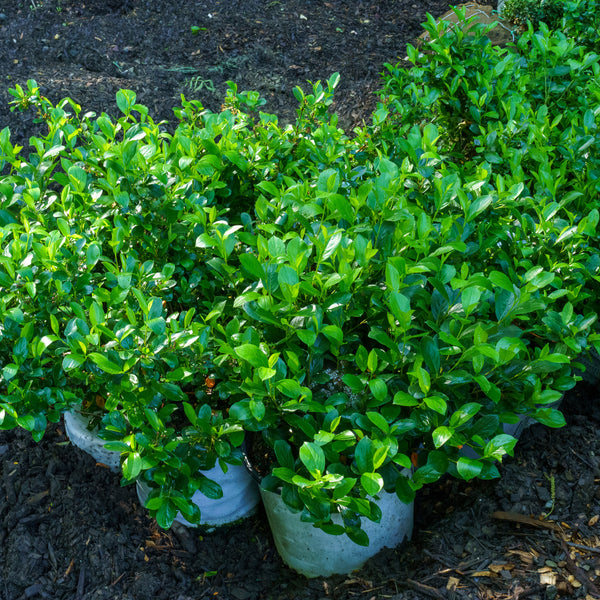Low Scape Mound Chokeberry
Low Scape Mound Chokeberry (Aronia melanocarpa 'UCONNAM165')
Low Scape Mound Chokeberry (Aronia melanocarpa 'UCONNAM165') is a dwarf, mounding native shrub developed for compact landscapes, containers, and mass plantings. Part of the Proven Winners native Aronia series, this cultivar offers ornamental beauty in every season - featuring spring flowers, glossy green foliage, summer berries, and rich fall color. It's a well-behaved alternative to larger shrubs, bringing the resilience of a native species to small-scale design.
Distinctive Features
'Low Scape Mound' grows just 1 to 2 feet tall and spreads 2 to 3 feet wide, forming a naturally rounded shape with minimal maintenance. Clusters of white flowers bloom in spring, supporting early-season pollinators. These are followed by small black berries in summer that attract birds. In fall, the foliage transitions to vibrant shades of red and orange, offering bold seasonal contrast in tight garden spaces or containers.
Growing Conditions
- Sun Exposure: Full sun to partial shade; best flowering and fall color in full sun.
- Soil: Adapts to a wide range of soils, including clay and poor-quality sites; prefers moist, well-drained conditions.
- Water: Moderate; drought tolerant once established, but also handles occasional wetness.
- Humidity: Performs well in both humid and arid climates with adequate airflow.
- USDA Hardiness Zones: 3 to 9; highly adaptable and extremely cold hardy.
Ideal Uses
- Focal Point Plantings: Compact form and seasonal color make it perfect for front-of-border highlights.
- Containers and Courtyards: Naturally small and dense for patio pots and tight spaces.
- Mass Plantings: Excellent choice for filling low spaces in commercial or native garden designs.
- Pollinator and Wildlife Gardens: Attracts beneficial insects and provides fruit for birds.
- Slopes and Erosion Control: Low, spreading form stabilizes soil and covers ground quickly.
Low Maintenance Care
Low Scape Mound requires almost no care once established. Its dense habit eliminates the need for shaping, and it performs reliably across a variety of soil and climate conditions. No serious pest or disease issues are known.
- Watering: Water deeply during establishment; mature plants tolerate drought and moisture fluctuations.
- Pruning: Rarely needed; prune in early spring if reshaping is desired or to rejuvenate older growth.
- Fertilizing: Not typically necessary; apply compost or light fertilizer in poor soils if needed.
- Pest and Disease Resistance: Naturally resistant to pests and common landscape diseases.
- Winter Care: Fully hardy and does not require protection in cold climates.
Why Choose Low Scape Mound Chokeberry?
Low Scape Mound Chokeberry (Aronia melanocarpa 'UCONNAM165') combines the beauty and ecological benefits of native plants with a landscape-friendly form. Its petite size, multi-season appeal, and rugged performance make it a versatile solution for modern gardens.
- Compact and Tidy: Perfect for small gardens, front borders, and container use.
- Seasonal Interest: Flowers, berries, and vibrant fall color in one low-growing package.
- Low Maintenance: Requires little care and tolerates tough site conditions.
- Supports Biodiversity: Feeds pollinators and wildlife while improving soil health.
- Native Durability: Adaptable across a wide range of climates and soils with strong performance.
For small spaces that demand big seasonal impact and ecological value, Low Scape Mound Chokeberry is a compact powerhouse that blends beauty with resilience.
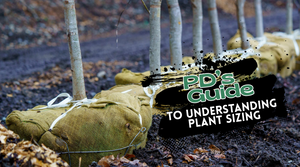
OUR SIZING
Not sure what 2 inch B&B or 30 Gallon Clump really means? This guide breaks down all our plant size terms so you know exactly what to expect, whether you're ordering online or picking up at our nursery. From caliper measurements to container volumes, we've decoded our system to help you shop with confidence.

Plant Detectives Shipping Guide
Nationwide plant shipping made easy. Learn how we ship trees, shrubs, annuals and perennials. No order too big or too small. Fast, careful, and contractor-friendly.

